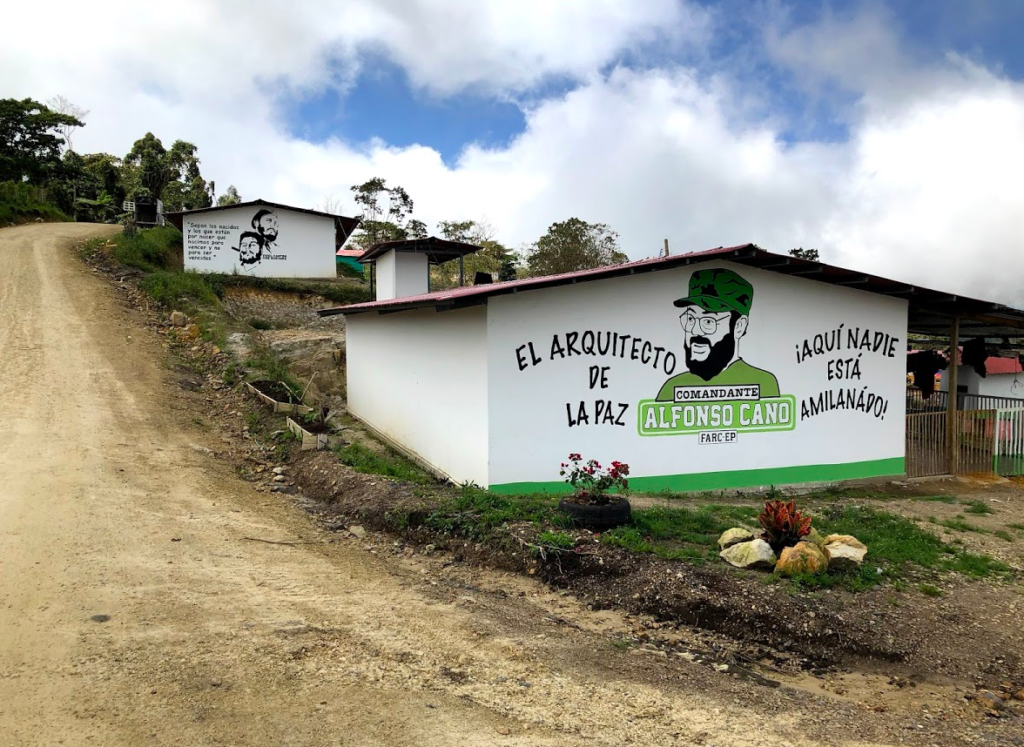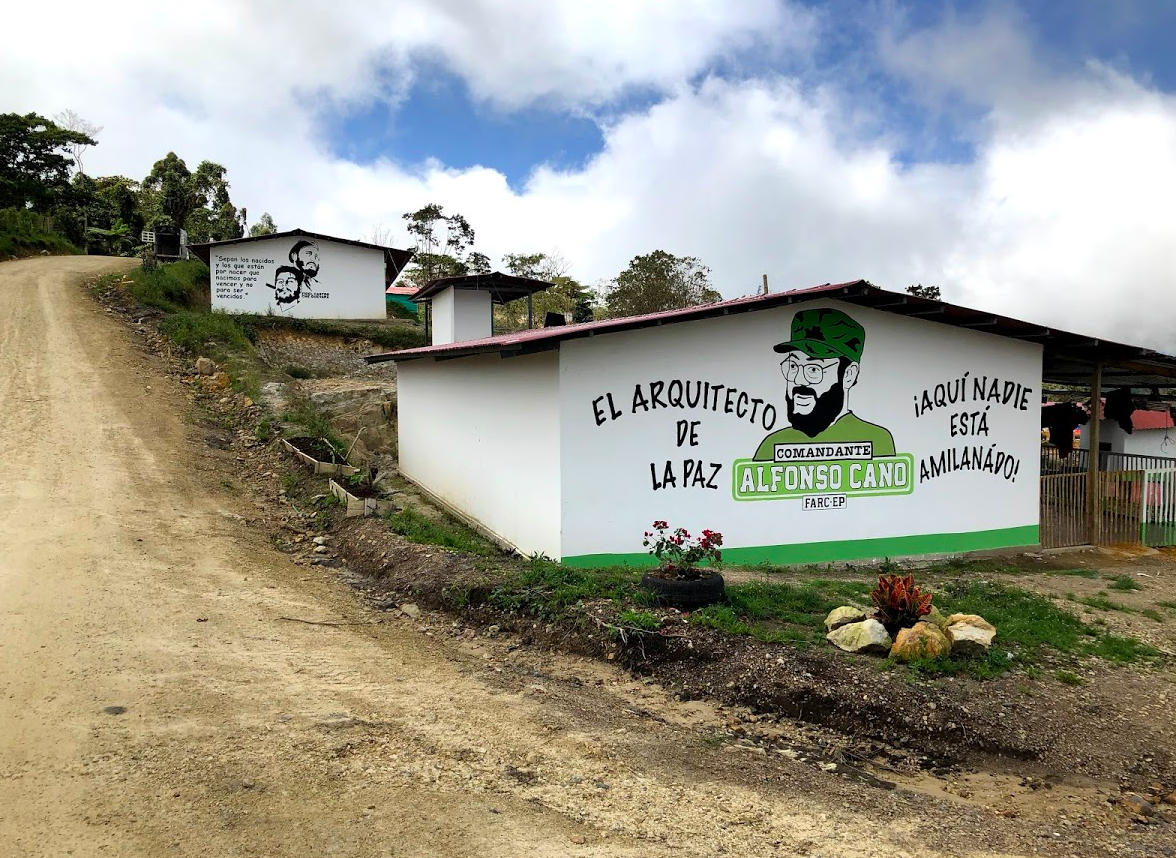Guest post by Jeff Mosenkis of Innovations for Poverty Action.

- IPA is offering funding for research on ideas about “Peace and Recovery” very broadly defined – looking to test new ideas for counteracting violence (including state and electoral), helping refugees, recovery from humanitarian crises, or countering extremism, and is accepting proposals from Ph.D. students. (The photo above is from research in a Colombian FARC demobilization camp). Expressions of Interest are due NEXT FRIDAY March 2. Please share with anybody who might be interested.
- Bryan, Choi, and Karlan (also with IPA) in an RCT find a business training program for the poor run by a Christian group in the Philippines works better with the Christian component than without it, with some caveats:
We find significant increases in religiosity and income, no significant changes in total labor supply, assets, consumption, food security, or life satisfaction, and a significant decrease in perceived relative economic status.
Summary, full NBER paper.
- Singapore’s government is happy to try to change its people’s behavior with a range of tactics from mandatory savings (less nudgy), to cash bonuses for having kids, to subsidizing food carts for offering healthier options.
- An interesting article on 20 randomized experiments to get people in Kenya to use health insurance for hospitalization (with a nice little gem of a line about the sample). Even when the insurance was free only 45% of people wanted it, but marketing through social networks helped. IPA found something similar with rainfall insurance for farmers – barriers often are around trust in a new financial product, or that the seller will be good for it, or understanding the value of insurance (I’ve heard about people selling fake insurance). Which is a good reminder that not all agents think like omniscient rational economist article authors. (via David Evans)
- J-PAL finds more trials are being registered on the AEA registry at the start of the process. But people are not great at following up when the study is completed, by linking to the paper. But their picture might be overly rosy:
- When Sanjay Srivastava had his (psych) open science grad class go back and compare published studies to their registries, they found lots of inconsistencies – registration happening after the study was complete, only one hypothesis out of the many tested registered, vague analysis plans, etc.
- In Nature, Gertler, Galiani, and Romero report on their experience with a 3ie replication grant initiative:
Despite 3ie’s best efforts, adversarial relationships developed between original and replication researchers. Original authors of five of the seven non-replicated studies wrote in public comments that the replications actively sought to refute their results and were nitpicking.
And things went downhill from there. When they tried to re-run the code from 203 studies, they successfully got the required files and got the code to run fewer than 1 in 7 times.
- The situation isn’t much different in AI, as Science reports, where only 6% of studies provided their algorithm for replication. (via Josh Kalla)
- A nice article by Jina Moore in the New York Times summarizes the history of the current Kenyan political conflict between President Uhuru Kenyatta and Raila Odinga, which isn’t quite history repeating itself, but certainly rhyming as the saying goes. Their fathers, Jomo Kenyatta and Jaramogi Oginga Odinga, both fought for independence from the British and were initially President and vice-President together, but then differences emerged in how to deal with returning British land to Kenyans. Kenyatta favored selling it (which effectively favored elites), while Odinga wanted it distributed more equitably among Kenya’s different ethnic communities. Similarly Kenyatta favored centralized government power while while Odinga favored more distributed power. Over time they drifted farther apart in their orientations, then Odinga started a new party and was jailed. Now their sons are political rivals as well.
- The Onion on Oxfam.


2 Responses
bankası çok hızlı ve güvenlidir, bu nedenle bu fırsatı kaçırmayın.
Hızlı bir fırsat!
D.E.A, Uluslararası Kredi ticaretinde (ILT) güvenilir, güvenilir ve güvenlidir. Lütfen acil bir kredi teklifi almak için bu fırsatı sakın kaçırmayın, 2018 ila 2023 yıllarını doğrudan yatırıma başlayarak yüzde 3’lük düşük bir yüzde oranı ile başlamak bir köprü. Emaill: (dealae@usa.com)% 100 garantilidir. Uluslararası banka havalesi bankası çok hızlı ve güvenlidir, bu nedenle bu fırsatı kaçırmayın.